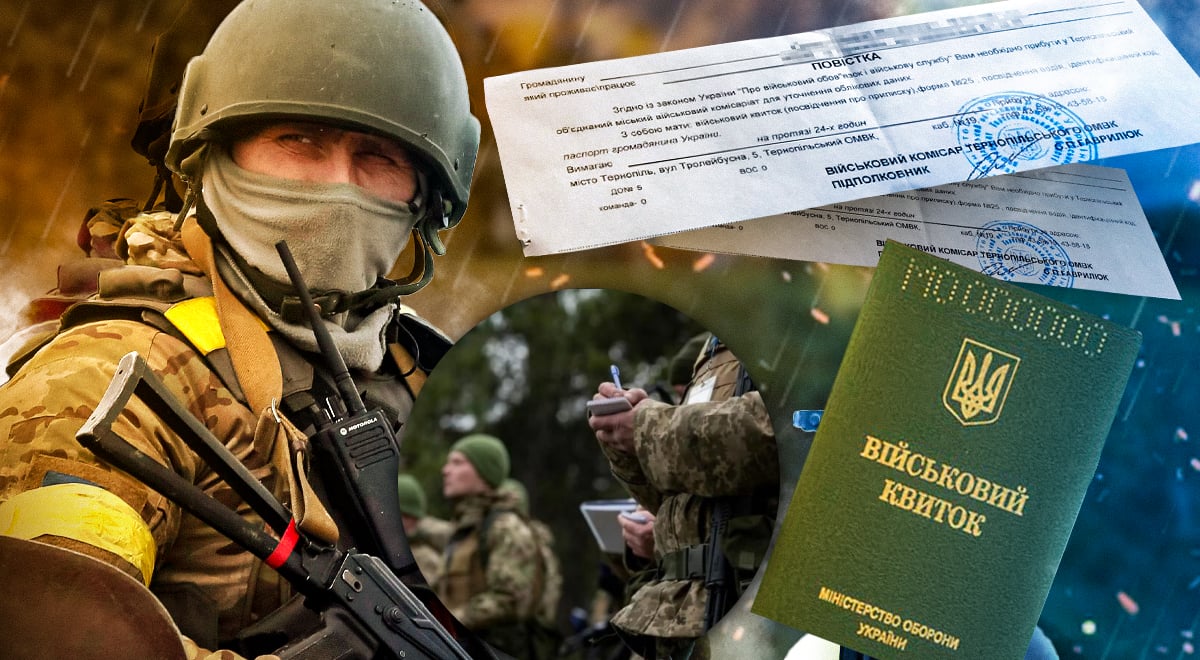I constantly strive to develop and acquire new knowledge, my experience and additional education confirm this.
Improper actions by TCC and SP employees can be a serious problem, as these institutions are responsible for ensuring compliance with laws and regulations regarding mobilization, registration, and other matters related to service in the Armed Forces of Ukraine. During mobilization, TCC and SP employees have a great responsibility for compliance with laws and procedures related to military service.
A summons to the Military Commissariat in Ukraine is an official document sent to a citizen to ensure his participation in military or alternative service. This may be related to conscription, medical examination, or other administrative procedures related to military conscription.
Typically, the subpoena contains the following information:
Citizen data: Full name, address, other personal data.
The purpose of the summons: Conscription for military service or other administrative procedures.
Time and place: The date and time when the citizen must appear at the military commissariat, as well as the address of the military commissariat.
Instructions: Instructions on the necessary actions, such as accepting documents, passing a medical examination, etc.
Consequences of no-show: Information about the consequences of no-show on the set date and time.
In the case of receiving a summons from the Military Commissariat, it is important to follow the specified instructions and appear at the Military Commissariat within the stipulated time, as failure to do so may have serious consequences in accordance with the legislation of Ukraine. If you have any questions or complaints, it is best to contact local legal advisors or human rights organizations for specific help and advice.If you have a complaint about the actions or inaction of the Military Commissariat, here are some steps you can take:
Preserve Evidence: Preserve all possible evidence that supports your stated facts about illegal TCC activity. These can be written documents, recordings of conversations, e-mails, witness statements, etc.
Seek advice from human rights organizations: Before filing a formal complaint, you may want to consult human rights organizations or legal counsel for advice on the best course of action in your particular situation.
File a complaint with the appropriate authorities: If you have sufficient evidence, file a formal complaint with the appropriate regulatory authorities.
Follow the complaint process: After submitting a complaint, follow the progress of your complaint and ensure that it is dealt with by the competent authorities.
Follow the law and procedures: Remember that when filing a complaint, it is important to follow the law and the requirements of official procedures.
Here is the general structure of a complaint to the Military Commissariat:
Title: "Complaint about [problem or situation]".
Introduction: In this part, briefly explain who you are, what your connection is with the Military Commissariat, and what exactly is the problem or situation that worries you.
Description of the problem or situation: Describe in detail what you are not happy with or what you want to change. Give specific examples or evidence if possible.
Requirement: Determine what exactly you want from the Military Commissariat: whether it is a change in a specific situation, obtaining information, or something else.Signature and contact details: Sign your message and include your contact details (phone number, email address, etc.) so that you can be contacted for further discussion.
Do not forget to take into account that the complaint should be official and polite, without insults or negative comments. You should also avoid using offensive or aggressive words.
Legal support in the military committee (support in the territorial center of recruitment and social support) can be important in cases where citizens need legal assistance on issues of military service, mobilization, military accounting and other military issues. Here are some aspects that can be covered by legal assistance at the Military Committee:
Consultations and representation: A lawyer can provide consultations on the rights and obligations of citizens in the field of military service, as well as represent their interests in the TCC and before military authorities.
Legal assistance regarding mobilization: A lawyer can help citizens understand their rights during mobilization, prepare the necessary documents, and defend their interests before military authorities.
Filing of appeals: In cases of wrongful decisions or actions of military authorities, a lawyer can help in the preparation and submission of appeals to the relevant authorities.
Protection of citizens' rights: A lawyer can protect the rights of citizens in judicial, administrative and other processes related to military service and activities of military bodies.
Legal support during medical examinations: A lawyer can help citizens prepare for medical examinations and protect their rights during such examinations.
If you need legal assistance at the Military Commissariat, you can contact a lawyer specializing in military law or administrative law. It is important to choose an experienced and qualified specialist who can protect your rights and interests in appropriate situations.
It is also necessary to take into account that the conscript is also responsible for not appearing at the military station, for which he can receive a fine for not appearing at the military station or answer to the court.
If you received a call from the military commissariat, it is recommended that you answer the call and find out what they are interested in. If you have any questions or misunderstandings, you may need to consult with a lawyer or human rights organization to clarify your rights and responsibilities in the context of military service.
































